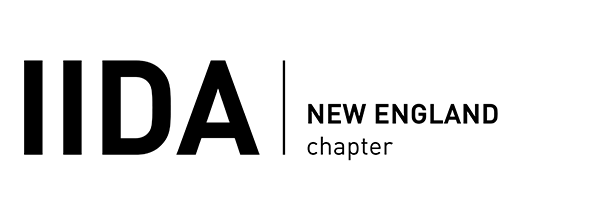Career Advice
Brian Walsh What sets a candidate apart in this competitive job market? Regardless of experience, humility and self-awareness are key. Knowing and being able to articulate your strengths and areas for improvement are critical, and being able to present yourself in a humble, ‘do whatever it takes’ approach can be intangibles that can be a difference maker if all else is equal. What advice would you give recent grads in this market? Try not to get discouraged if you are finding it difficult to land a job offer. In 2008-2009 I saw so many young professionals leave the industry all together because they struggled to find work, and it created a huge shortage of talent in that age demographic. While hiring has dropped significantly in the last 7 months, we have started to see some positive trends since Labor Day. While we are still seeing layoffs, they seem to be taking place with firms who are more vulnerable to the Covid-specific downturn (corporate interiors, retail/hospitality, higher ed). We have seen more search requests from existing clients, and even a few new ones, since Labor Day than the 5 months prior combined. Similar to my first answer, showing really positive intangibles (work ethic, drive, willing to do anything/whatever it takes) will definitely increase your chances of a firm making an offer. Don’t be afraid to reach out directly to principals; it may seem intimidating, but in my opinion it would be an opportunity to separate yourself from other junior candidates. It seems in this economy contract positions are a trend. What are the pros and cons of contract work? I spent the majority of my career prior to starting 52XConsulting in Boston placing contract employees. There are pros for both employers and employees. From a pure economic standpoint, contract/temporary hiring will be more prevalent than “direct” hiring as the market comes back, because firms will be getting busier but still hesitant to make the full time commitment. It allows the candidate a foot in the door that otherwise may not be there, and it provides the company the flexibility to deliver on work, or take on new projects, without the commitment of the full time hire. It also allows for an easier exit strategy for each party if things don’t work out. There is a misnomer that contract work is not as stable as “permanent” work. I have found if you are talented, work hard, and are a great culture fit, a company will fight to keep you. If you are not, then it doesn’t matter whether you are on a contract assignment or you were a full time hire; that company will not keep you. As for cons, nothing is perfect; benefits (specifically health insurance costs) are typically not as strong. Some companies do genuinely treat their contract employees differently than their full time employees. As a candidate I would really vet out a company to ensure there is little to no delineation from a contract employee to a full time one, What market segments are you seeing continue to grow? Life sciences was the hottest market pre-Covid, and it only continues to get more competitive. I have seen close to a ½ dozen design firms and almost as many CM’s enter into the Life Sciences sector in the past year. I think as hospitals come back financially to the severe negative impacts the first few months of Covid brought, you will see healthcare-related design continue to grow. We have an aging population, and as the Baby Boomer generation and older Gen X generation continues to age, it will require more healthcare facilities. Another market we have seen really increase in the last 7 months is residential. As people look to leave urban areas and/or expand their existing homes or acquire second homes in the remote work/school culture that has been created, it has led to residential design and construction really booming. How flexible should you be with your expected salary and benefits given the economy? No one wants to settle but you also don't want to take less than your experience and expertise are worth. A very important question. We are already seeing this to a certain extent. Companies have seen huge decreases in their revenue, and there is a trickle down effect. Many companies have asked employees to take 10%/20%/25% pay cuts and/or reduced schedules. As recently as Feb 15th it was still a “candidate” market, where the most candidates could command top of the market salaries. At the end of the day, the best talent will still command higher than average salaries. I think flexibility is important, but I don’t think people should assume a huge pay cut. This is where partnering with a recruiter can really help. Recruiters have a keen sense of the market, can help with trends, data, etc. It’s hard to find true data out there, and I find a lot of times candidates don’t have a true sense of the market, and talk to us about salary targets that can be really off track. What are the dos/don’ts for resumes? This doesn’t always sit well with designers, but the traditional resume to me always work best. I find many designers want their creativity to show through their resume; in my opinion that should be for the portfolio. Aesthetically, I think bullet points that clearly and succinctly explain roles, responsibilities, and accomplishments can paint a good picture of the candidate’s overall skill set. Paragraph summaries can quickly lose the attention of the reader. The average hiring manager reviews a resume for about 6 seconds; enough detail to show what your qualifications are but short enough to keep the attention of the reader. What advice do you give to candidates about pivoting to a related position? (i.e. designer to sales rep, designer to project management/construction) I do think in tougher times pivoting could prove to be a great option. I think one should really think through it, though, and be sure this is something you could see yourself doing for the next X years. Employers often will be hesitant to hire someone who is pivoting, partly because there could be a fairly large learning curve, and a lot about the commitment long term. What happens if your original path becomes a viable option again? If a candidate can clearly articulate (genuinely) that the pivot is what they want to do, it will go a long way. Anything else you'd like to share? For the first time since 2009/2010 we have seen a large number of companies being forced into deep layoffs and furloughs. I am seeing really talented individuals unemployed, in many cases for the 1st time in their careers. For those directly impacted and/or nervous, stay patient and use your network. I have had to coach a lot of people on how to ask for help; there should be no shame or embarrassment. What I love about this industry is that the vast majority of people are there to help. It is exactly for times like this where a platform like LinkedIn can be used for its original intent: to allow it to be easier to network for your own career. Don’t be afraid to ask for an introduction a recommendation etc. And for employers, there has long been a stigma attached to people who have been laid off…”there must be something wrong with this person if they have been laid off”. As I mentioned above, I am seeing people now on the market who never would have otherwise been available. This could be a great time for firms to capitalize (if they are in a position to do so) to add top talent to their organization |

